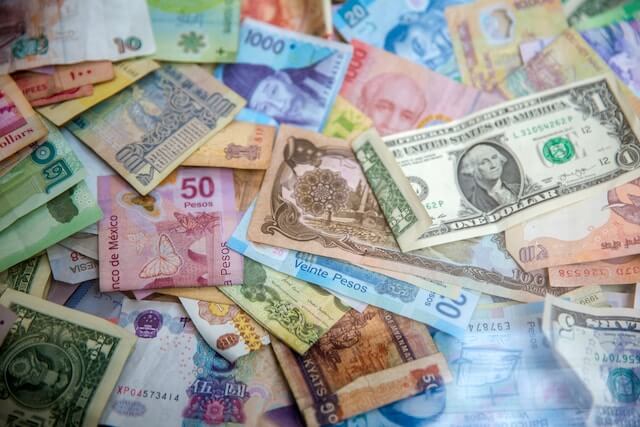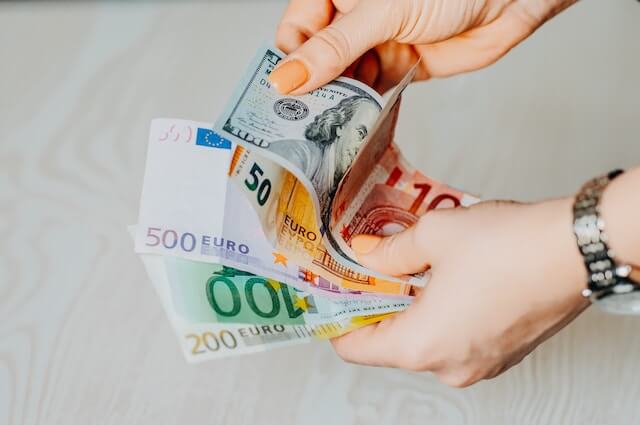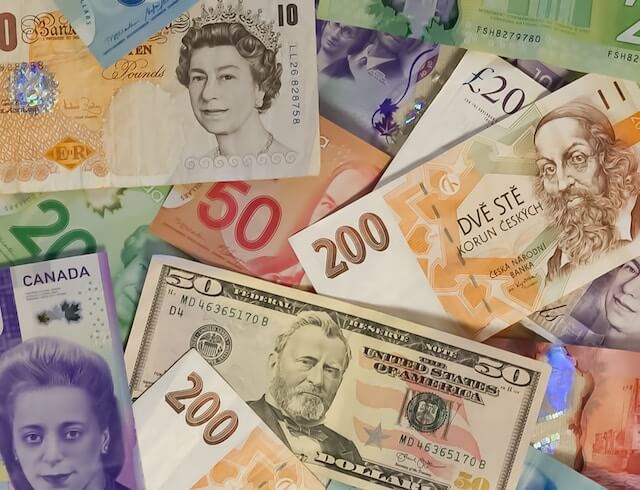Last Updated on December 27, 2023 by Mubashir Rafique
In the global economy, currencies play a crucial role in facilitating trade and financial transactions. Some currencies hold more value than others, and in this blog post, we will explore the concept of the highest currency in the world.
We will delve into the factors that contribute to a currency’s value and discuss the top contenders for this prestigious title. Additionally, we will touch upon the Forex law and address the common question of whether Forex trading is halal or haram.

Understanding Currency Value
Before we dive into the highest currencies, it’s essential to understand how currency value is determined. Several factors influence a currency’s strength, including economic stability, inflation rates, interest rates, political factors, and market demand. These elements collectively shape a currency’s exchange rate and its standing in the global market.
A currency’s economic stability is crucial in determining its value. Countries with stable economies, low inflation rates, and low interest rates tend to have stronger currencies. On the other hand, countries experiencing economic instability, high inflation rates, and high interest rates often have weaker currencies.
Political factors also play a significant role in currency value. Political stability, government policies, and geopolitical events can affect a currency’s strength. For example, a country with a stable political environment and favorable government policies is more likely to have a stronger currency.
Market demand is another crucial factor. Currencies that are in high demand for international trade, investments, and tourism tend to have higher values. Additionally, the availability of a currency in the foreign exchange market and its liquidity influence its value.
The Top Contenders
When it comes to the highest currency in the world, several currencies consistently rank at the top. Let’s explore some of these notable currencies:
1. Kuwaiti Dinar (KWD)
The Kuwaiti Dinar is often regarded as the highest-valued currency globally. With its stable economy and vast oil reserves, Kuwait has managed to sustain the strength of its currency over the years. The Kuwaiti Dinar is widely used in international transactions and is known for its high value against major currencies like the US Dollar and the Euro.
2. Bahraini Dinar (BHD)
Another currency that frequently competes for the top spot is the Bahraini Dinar. Bahrain’s well-diversified economy and its focus on sectors like finance and tourism contribute to the stability and high value of its currency. The Bahraini Dinar is widely accepted in the global market and is often used for cross-border transactions.
3. Omani Rial (OMR)
The Omani Rial, the currency of Oman, is also recognized for its high value. Oman’s oil-based economy and prudent fiscal policies have helped maintain the stability and strength of the Omani Rial. The Omani Rial is widely used in the Middle East region and is often considered a stable currency for investments and trade.
Forex Law and the Highest Currency

As we discuss currencies and their values, it is essential to touch upon Forex law. Forex trading, or foreign exchange trading, involves the buying and selling of currencies to profit from their fluctuations in value. The legality of Forex trading varies across countries, and it is crucial to familiarize yourself with the regulations in your jurisdiction.
In some countries, Forex trading is regulated and requires licenses or permits. These regulations aim to protect traders and investors from fraud, ensure fair practices, and maintain the stability of the financial system. It is important to comply with the Forex laws in your country to engage in legal and secure trading activities.
Moreover, one common question that arises is whether Forex trading is halal or haram according to Islamic principles. This is a subject of debate among scholars, and individuals interested in Forex trading should seek guidance from religious authorities to ensure compliance with their beliefs.
Islamic finance principles prohibit activities that involve excessive speculation, uncertainty, or gambling. Therefore, some scholars argue that certain forms of Forex trading may not be permissible under Islamic law.
It is advisable for individuals to consult religious authorities who specialize in Islamic finance to understand the nuances and make informed decisions.
Currency Value Determinants: A Closer Look
As global economies continue to interconnect, currency value fluctuations have a profound impact on businesses and individuals alike. Understanding what drives these changes is essential to successful financial planning. In this article, we delve deeper into the currency value determinants that shape exchange rates.
1. Macroeconomic Factors
One of the primary drivers of currency value is macroeconomic factors such as inflation, interest rates, and economic growth. For example, a country with higher inflation rates typically has a devalued currency, as it becomes less attractive to investors. Similarly, higher interest rates make a country’s currency more valuable as investors seek higher returns. The currency name also has a good impact on its value sometimes.
2. Political Stability
Political instability can have a significant impact on currency value. Investors tend to avoid currencies of countries with high levels of political uncertainty as it indicates potential risks. For instance, political upheavals, social unrest, and changes in government may lead to currency depreciation.

3. Trade Balance
Countries that export more than they import (trade surplus) tend to have a stronger currency. The opposite is true for countries that import more than they export (trade deficit). A trade surplus translates to increased demand for a country’s currency, as foreign investors need it to buy its goods and services.
4. Speculation
Speculation also influences currency value determinants. Traders speculate about the direction of currency value based on macroeconomic and political developments, and this influences currency trading. For instance, if traders anticipate a currency’s depreciation, they may sell it en masse, resulting in currency devaluation.
5. Monetary Policy
Central Banks use monetary policies to regulate economic activity, and is another vital factor influencing currency value. The actions central banks such as interest rate changes, control of money supply and inflation management, can affect currency valuation. Central Banks can also purchase and sell currencies to influence exchange rates.
6. Market Sentiment
Market sentiment is another currency value determinant. It refers to investor’s perception of future economic developments and financial conditions. Market sentiment can change rapidly based on external events such as pandemics or geopolitical crises. The anticipated economic measures and global financial conditions can affect currency valuations.
7. Market Trends
Finally, market trends also influence currency value. Sometimes, certain currencies can become popular for investment based on external factors. For instance, if a country controls a vital resource such as oil, its currency may become a preferred investment opportunity.
These are some of the factors that contribute to currency value determinants. While currency valuation is complex and affected by a host of variables, understanding these determinants can help investors and businesses navigate foreign exchange markets.
By staying abreast of economic and political developments, investors can create informed financial strategies that shield their investments from currency volatility.”
Conclusion
In conclusion, understanding currency value and the highest currency in the world provides valuable insights into the global financial landscape. Currencies like the Kuwaiti Dinar, Bahraini Dinar, and Omani Rial consistently rank high in terms of value.
However, it is essential to consider various factors that contribute to currency value, including economic stability, political factors, and market demand.
Additionally, staying informed about Forex laws and regulations is crucial for individuals interested in Forex trading. Compliance with legal requirements ensures a safe and secure trading environment.
Whether Forex trading is halal or haram is a personal and religious consideration that individuals should explore with guidance from appropriate authorities, considering the principles of Islamic finance.
By staying informed about the highest currencies and the dynamics of the Forex market, individuals can make informed decisions regarding their financial endeavors. It is always wise to consult updated sources for the most accurate and current information, as currency values are subject to change.
